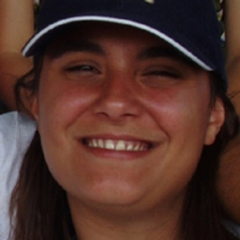Computational Molecular Evolution
18–29 July 2022
Wellcome Genome Campus, UK
Hands-on training in the latest methods and skills for molecular evolutionary analysis of sequence data
Summary
Run biennially at the Wellcome Genome Campus, this hands-on computational course aims to provide early-career stage researchers with the theoretical knowledge and practical skills to carry out molecular evolutionary analyses on sequence data.
In addition, the course will offer a unique opportunity for direct interaction with some of the world-leading scientists and authors of famous analysis tools in Evolutionary Bioinformatics.
The demand for such training is large and growing, as are the sequence databases and researchers’ awareness of the important insights that can be gained from phylogenetic and molecular evolutionary techniques.
Target audience
Experience from previous years has led to preference being given to candidates who:
- are doctoral candidates in the early to middle stages of their thesis research
- already have some familiarity with phylogenetic methods (i.e. have already used some of the relevant tools)
- have already collected/assembled a molecular sequence dataset to analyze in their work
- have experience of working in a Unix/Linux command-line environment
We will also select a small number of participants that already work in bioinformatics labs, to intensify collaboration between early career stage biologists and bioinformaticians. Applicants from labs with a strong focus on computational molecular evolution methodology need to carefully outline their motivation for attending the course in this context, since they have ready access to expert supervision and are likely to be very skilled already in the topics we teach, or are in the course of becoming very skilled therein.
The course is also suitable for established researchers and instructors who would like to refresh their memory of modern statistical methods for phylogenetic analysis of genomic sequence data and to interact with developers of such methods.
Programme
The overall objective is to raise the standard of research that uses statistical methods and software programs in the field of molecular evolution and phylogenetics, by providing high-quality, in-depth, face-to-face training on this topic for as many researchers as possible.
The extensive programme comprises a mixture of lectures and computer practicals covering the following topics:
- Overview of phylogenetic terminology, methods and analyses
- Multiple sequence alignment
- Phylogeny reconstruction (including maximum likelihood and Bayesian methods)
- Hypothesis testing
- Analysis of genomic data under multispecies coalescent
- Protein and nucleotide sequence analysis, including NGS data
Learning Outcomes
By the end of the course participants will have an improved theoretical understanding of relevant methods in evolutionary bioinformatics and should be able to:
- Critically interpret and apply relevant techniques to their evolutionary research.
- Interpret evolutionary trees and recognise the power of molecular phylogenies for understanding real-world biological questions, relating to evolutionary history, current-day biodiversity and future diversification of living organisms.
- Browse, query and extract genome sequence data from public databases, and createmultiple sequence alignments.
- Employ appropriate bioinformatics skills that also allow for the analysis of large genome-scale datasets, including command line use of specialist software, simple scripting, and compiling programs.
- Select and apply appropriate commonly used phylogenetic software packages (such as PhyML, RAxML, PAML, MrBayes, BEAST) to infer phylogenetic trees, estimate divergence times, and test phylogenetic hypotheses.
- Explain the underlying principles of major phylogenetic methods such as distance matrix-based, maximum likelihood, and Bayesian methods, including the MCMC method.
- Explain the use of Markov models of nucleotide, amino acid and codon substitution, hypothesis testing using the likelihood ratio test, coalescent and multispecies coalescent models in species tree estimation and species delimitation.
- Apply likelihood ratio tests to infer the existence and location of molecular adaptation affecting protein-coding genes.
- Estimate species tree, delimit species boundaries and estimate the time and rate of cross-species gene flow using coalescent-based analyses of genomic sequence data.
Additional Sessions
There will also be the opportunity for participants with programming experience in bioinformatics to participate in 2–3 ad hoc sessions on specific coding-related (e.g., C++, R, github) or theory-related (e.g., terraces in tree space) topics that will emerge during the course. These will be led by the course instructors or teaching assistants.
Please note: This course focuses on NGS analyses in molecular evolution. We do not cover NGS analysis pipelines e.g., QC, read mapping, variant calling, assembly.
Instructors and speakers
Lead Instructors/Organisers

Aglaia (Cilia) Antoniou
Hellenic Centre for Marine Research (HCMR), Greece

Adam Leaché
University of Washington, USA

Alexandros Stamatakis
Heidelberg Institute for Theoretical Studies, Germany

Ziheng Yang
University College London, UK
Instructors and Assistants
Rebecca Bengtsson
University of Liverpool, UK
Ben Bettisworth
Heidelberg Institute for Theoretical Studies, Germany
Bastien Boussau
LBBE-UMR-CNRS, France
Sandra Alvarez Carretero
University College London, UK
Mike May
Uiverisity of California, Davis, USA
Emily Jane McTavish
University of California, Merced, USA
Benoit Morel
Heidelberg Institute for Theoretical Studies, Germany
Julija Pecerska
Zurich University of Applied Sciences, Switzerland
Bruce Rannala
University of California, Davis, USA
Ben Redelings
Duke University & University of Kansas, USA
Asif Tamuri
University College London, UK
Jeff Thorne
North Carolina State University, USA
Rachel Warnock
Friedrich-Alexander-Universität, Germany
How to apply
Prerequisites
Experience from previous years has led to preference being given to candidates who:
- are doctoral candidates in the early to middle stages of their thesis research
- already have some familiarity with phylogenetic methods (i.e. have already used some of the relevant tools)
- have already collected/assembled a molecular sequence dataset to analyze in their work
- have experience of working in a Unix/Linux command-line environment
We will also select a small number of participants that already work in bioinformatics labs, to intensify collaboration between early career stage biologists and bioinformaticians. Applicants from labs with a strong focus on computational molecular evolution methodology need to carefully outline their motivation for attending the course in this context, since they have ready access to expert supervision and are likely to be very skilled already in the topics we teach, or are in the course of becoming very skilled therein.
The course is also suitable for established researchers and instructors who would like to refresh their memory of modern statistical methods for phylogenetic analysis of genomic sequence data and to interact with developers of such methods.
How to Apply
Please click the Apply button above to begin the online application process. Places are limited and will be awarded on merit. If you have any problems with the online application process, please contact us.
Please note: Applications must be supported by a recommendation from a scientific or clinical sponsor (e.g. supervisor, line manager or head of department). A request for a supporting statement will be sent to your nominated sponsor automatically during the application process. Applicants must ensure that their sponsor provides this supporting statement by the application deadline. Applications without a supporting statement cannot be considered.
Travel visas
Successful applicants will be provided with a support letter for their visa application, if required.
Please visit the following websites for further information on visiting the UK:
Cost
| Cost | Accommodation / meals | |
| *Course fee | £1,800 | This is a residential course and the fee includes all accommodation and meals. |
*The course fee is subsidised by Wellcome Genome Campus Advanced Courses and Scientific Conferences and applies to non-commercial applicants. Please contact us for the commercial fee.
Bursaries
Limited bursaries are available (up to 50% reduction on the course fee) and are awarded on merit. If you would like to apply for a bursary, please complete the bursary section of the online application form.
Where there are many bursary applications, the selection committee may issue smaller amounts.
Bursaries can be applied for as part of the course application form. Applicants will be notified of a bursary award along with their place on the course, usually within one month of the application deadline. The decision of the selection committee is final.
Please note that both the applicant and sponsor are required to provide a justification for the bursary as part of the application.
Extra accommodation
If you wish to book onsite accommodation either side of the course dates, please contact the Conference Centre directly.
Additional funding opportunities
Visit our support page for additional financial support currently available.
Accommodation services phishing scam – please be vigilant. More information.

